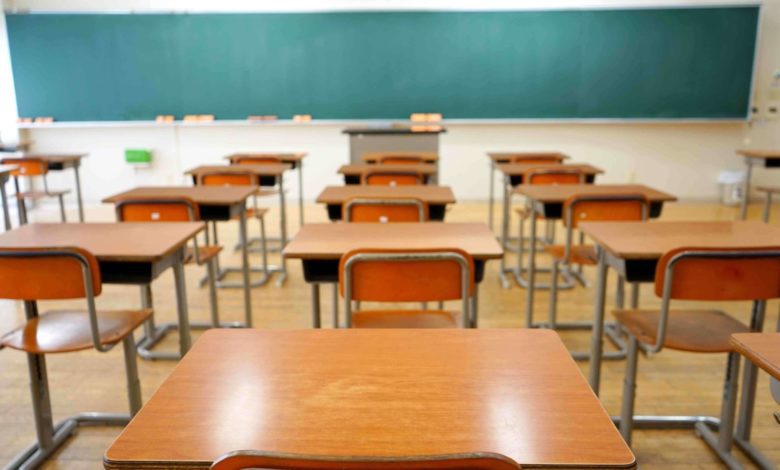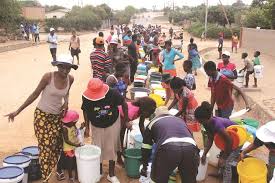Umzingwane district has a deficit of 45 science teachers

Umzingwane district has more than 45 vacancies for mathematics and science teachers as the shortage of science teachers persists particularly in Matabeleland with only 600 science teachers having graduated nationally last year.
Then again, according to a National Critical Skills Audit conducted between December 2017 and April 2018, Zimbabwe has a serious shortage of skills in Science, Medicine, Engineering, Law averaging more than 90 percent but a surplus in commercials and humanities of over 100 percent.
This was revealed in Parliament last week when Member of Parliament for Umzingwane, Retired Brigadier General Levi Mayihlome asked what the ministries of Public Service, Labour and Social Welfare and Higher and Tertiary Education, Innovation, Science and Technology Development were doing to address the shortage of science teachers.
“We have noticed that teachers for Maths and Science are needed much in Rwanda and most of our schools in the Matabeleland region are still having a zero pass rate for Maths and Science.
“What measures are being taken to mitigate this issue? There was once an attempt to take students to go and learn Maths and Science in Cuba; as of now, I speak of Umzingwane District. There are more than 45 vacancies for Science teachers but only two have occupied these positions. What measures have been taken by these ministries to curb this shortage of Maths and Science teachers?” he asked.
In response, Minister of Higher and Tertiary Education, Innovation, Science and Technology Development, Professor Amon Murwira, acknowledged there was a problem, which
the government was addressing.
“When we have an issue, we normally say, problems do not go by shouting at them or shouting loudly about the problem. This is done through strategic solutions. To this end, we have said just last year, we graduated 600 teachers. We did not have them because you cannot distribute what you do not have,” he said.
“Normally people talk about wanting to have this also but when it is not there, you cannot have it. What we have concentrated on is making sure that we have got those teachers and now we can talk about distribution.”
Prof Murwira said in 2018, the government recognised the importance of science education and made some measures such as increasing numbers of science teachers training colleges.
“Mkoba Teachers College has a secondary science teacher’s programme starting from 2018, Masvingo Teachers College has a science teacher’s programme from 2018, we have Joshua Mqabuko Nkomo Polytechnic, it has a science teacher’s programme from 2018. We have also made sure that Mary Mount Teachers College has a science training teacher’s programme from 2019,” he said.
“So, we now have been able to enrol 600 teachers for Science only at Mkoba Teachers College, at Mary Mount Teachers College, at Masvingo Teachers College and Joshua Mqabuko Nkomo Polytechnic which was never there before. We have also bolstered the science teaching programme at Mutare Teachers College, Hillside Teachers College and Belvedere Technical Teachers College. So, the response has been such that last year in 2022, we graduated our first crop of secondary Science teachers.”
The higher education minister claimed the government was looking at having 5 000 secondary science teachers trained by 2025.
“There are steps that we are taking. When it comes to the Matabeleland region that he is talking about, we actually have Joshua Mqabuko Nkomo that is doing that,” he said.
“In terms of policy, the policy is very clear. The pace might not be as fast as we want it to be but training takes its own course, and in terms of policy, we are now very clear – the policy has recognised the need to increase that.”
He also said there was a supplementary science teacher training programme at the Bindura University of Science Education, where the Ministry of Primary and Secondary Education sends teachers for continuous training.
“We recognise that for a country to be able to develop, it must have knowledge of science, technology and innovation. So the government puts science at the centre of the country’s industrialisation and modernisation agenda. All problems that might be there are just transient. We are moving,” Prof Murwira claimed.
“I think from a policy perspective, we have responded to the general national problem of the shortage of science teachers and we have said we now have trained science teachers. The issue of 42 is very specific. What I can only say is we have heard Hon. Mayihlome. We will take that to the specific Ministry so that the issue can be looked into. Now the good thing is we can now talk about distribution because we have produced them. In the past, there was nothing.”
Prof Murwira said the government conducted a National Critical Skills Audit between December 2017 and April 2018, to measure where the country stands in terms of the skill set available.
“These are the results: Our skills levels in science, technology and innovation are three percent and our deficit is 97 percent. In medicine, our skills levels are five percent and the deficit is 95 percent. In engineering, our skills availability is six percent and unavailability is 94 percent. In law, we actually found out that the skills availability is also about 20 percent and a deficit of 80 percent. In commercials and humanities, we have an excess of 121 percent,” he said.






